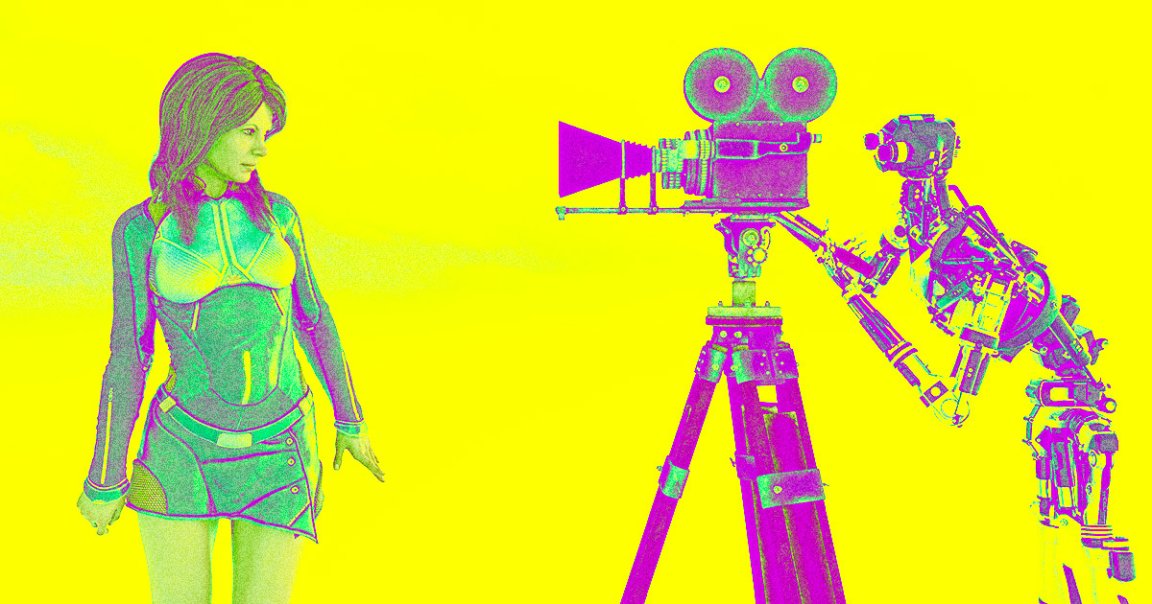
Copied on the Spot
The power and ubiquity of generative AI has had people fearing for their livelihoods — especially artists, who worry that their work will be vulnerable to mass plagiarism by the AIs that are being “trained” on their art.
And, as The Wall Street Journal reports, even Hollywood is beginning to feel the heat.
Phil Wiser, technology chief at Paramount Global, a media conglomerate and one of the largest film studios and distributors in the world, recently rang the alarm bells during a presentation with company executives.
In his presentation, Wise used the popular AI image generator DALL-E to spit out some of Paramount’s most iconic characters. First, he had it generate SpongeBob on the fly. Then, Wiser had DALL-E generate an image of Optimus Prime from “Transformers” standing in the studio’s lot.
“This woke everyone up,” he told WSJ.
Credit Where It’s Due
Wiser makes a fair point. The profitability of the entertainment business rides on intellectual property ownership, as the WSJ notes. But if cheap, easy-to-use AI enables practically anyone to create images that are directly ripped from existing art or iconic characters, who gets the credit — and the money?
That’s a question the Writers Guild of America is reportedly grappling with when it comes to screenplays.
“One of the biggest risks here is that these engines can generate our intellectual property in new ways, and that is out in the hands of the public,” Wiser told the WSJ.
It’ll take some big court cases to figure out where exactly the law stands on this uncharted legal territory. Notably, Getty Images, one of the world’s foremost providers of stock images, sued Stability AI in February, accusing the startup of using over 12 million of its photos to train its popular image generator, Stable Diffusion, without permission.
Time and Place
Still, many creatives in the industry argue that there’s a time and a place for generative AI.
The Oscar-winning, mid-budget movie “Everything Everywhere All At Once” used a generative AI tool to erase a pulley system that manipulated two characters in the form of talking rocks during one of the film’s climactic scenes. Evan Halleck, the film’s VFX specialist, told the WSJ that this saved a couple of days of tedious work.
Others, though, lament generative AI as the harbinger of death for original, creative expression.
“AI uses what already exists out there and that doesn’t create innovation,” Jason Blum, founder and CEO of the horror-focused production company Blumhouse, told the WSJ.
“If you look back at the most celebrated movies and shows over time, like ‘Citizen Kane,’ I find it hard to believe that any of those would exist in an AI-driven content world,” he added.
Read more: Who Owns SpongeBob? AI Shakes Hollywood’s Creative Foundation
More on AI: Screenwriter Union Reportedly Proposes Allowing AI-Written Movies and TV Shows